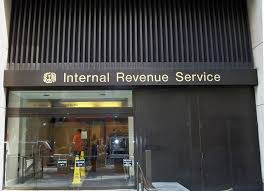bitcoin now taxable

Since Bitcoin’s introduction in 2009, the IRS has left users in the dark about the tax liability of their assets.On Tuesday, the IRS clarified its position on the tax status of virtual currencies, and it’s official: Bitcoin is property and not currency, at least as far as the U.S.Any net gain from holding or transacting in Bitcoin is subject to capital gains taxes.Bitcoin sold or used within a year of purchase are short-term gains and subject to ordinary income tax rates, which could be as much as 39.6%, whereas assets sold after a year of purchase are long-term and are taxed at lower rates.If you mine your own Bitcoin, this constitutes taxable gross income equivalent to their fair market value at that date.While the IRS has finally provided an answer, there are good reasons to believe that they got it wrong.Virtual currencies are tricky assets to categorize.Sometimes they behave like currencies, sometimes like commodities, and sometimes like stocks.This unique quality is reflected by several wrinkles in the IRS’s approach to virtual currencies, treating them like both capital gains as well as wages.

The nature and volume of these transactions do not seem to marry well with the sorts of long-term capital investments which usually taxed at the lower rate.In fact, at Bitcoin’s most recent peak in November 2013, there were 93,000 transactions in a single day where people bought everything from haircuts to hoagies and houses.This suggests that Bitcoin is not used as a tool for long term investment.The new policy also poses compliance obstacles.Users must maintain detailed records of their acquisitions and transactions made with the virtual currency, and the fair market value in U.S.dollars on each occasion.This may prove a daunting task, particularly given Bitcoin’s recent price volatility.While users with sizeable Bitcoin wallets might be motivated to comply with the new policy, those with smaller wallets might not find the hassle worth their time.Additionally, the IRS policy (Notice 2014-21) is effective not only from March 25, 2014 onward, but retroactively as well.The IRS FAQ includes a question of whether penalties will be applied for people who don’t have records before the date of the notice; the FAQ answer dodges the question, simply asserting that “penalty relief may be available to taxpayers…who are able to establish…reasonable cause.” Applying penalties for disobeying a then-non-existent policy is wrong; being unclear about whether penalties will apply retroactively is worse.

All told, the IRS sees Bitcoin as something that people buy and hold, hoping it will go up in value.They completely miss the primary use of Bitcoin, as a currency for both transactions and wages.The tax treatment and compliance requirements as part of this notice are inappropriate for that usage of virtual currencies.Topics Center for Legal Reform Individual Income and Payroll Taxes Related Articles Subscribe to The Weekly Tax Update Join over 30,000 subscribers!Get the latest in tax news and analysis, delivered directly to your inbox every week.The advent of Bitcoin and blockchain technology has made government taxation obsolete, given how difficult cryptocurrency can be to identify and trace.Throughout modern history, governments have survived through taxation, or the involuntary acquisition of the product of their citizens’ labor.The advent of government-controlled money made this process vastly simpler.However, with the rise of Bitcoin and other cryptocurrencies based on blockchain technology, state power to tax income is slipping, and may at some point become a thing of the past entirely.

At its root, taxation is based on compliance of the taxed.Now by no means does that mean that citizens would pay taxes if they could choose otherwise, but rather that they do so rather than face repercussions.It would be logistically impossible for a governing body to collect funds from the entire citizenry without any meaningful compliance from the taxed.As it stands in the United States, the current taxation system is broken and ineffective.
litecoin calculatorWith the likelihood of an audit very small for the average citizen, many are able to cut corners on reporting income with very few consequences.
bitcoin wallet meaningThe advent of blockchain technology further complicates tax collection.
bitcoin plugin minecraft
Cryptocurrency is extremely impractical to trace.To begin with, while all Bitcoin transactions are public and viewable by anyone, the ownership or control over wallets and addresses are not.Simply use different addresses, and financial investigation is effectively obfuscated from a superficial investigation.Employ a VPN for extra privacy, and use a coin-mixing service to thoroughly mix up which transactions represent legitimate economic activity and which were simply diversionary nonsense.
comprar bitcoin vale a penaTo take it a step further, use alternative cryptocurrencies like Dash (which has its own mixed “darksend” feature) or Monero (which, among many other features, uses ring signatures to hide legitimate cryptographic signatures amongst a host of decoys).
bitcoin faucet indiaFor extra fun, use all of the above to weave an intricate puzzle nearly impossible to decipher, and absolutely not worth the trouble for all but the biggest targets.
ethereum t shirt
Finally, the very definition of income is fast becoming a moving target.To begin with, a new cryptocurrency can be minted almost instantly, rendering obsolete and inapplicable all laws that specifically name a particular cryptocurrency.Even if all cryptocurrency were to be legally classified as taxable income, blockchain-based crypto-tokens could narrowly escape the definition of currency by semantics, and yet still be a viable form of trade.
yellen and bitcoinIf all else fails, determined tax evaders can simply adopt a gifting economy, using a blockchain system to keep track of who had given what to whom.
dogecoin highWhich, after all, is all money really is, stripped to its base elements.
ps4 bitcoin priceA new age is upon us, thanks to technology.Governments, once able to control currency and ensure they were able to claim a portion of their citizenry’s income as their own, will soon lose this power.